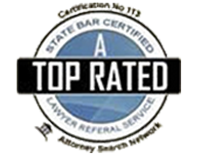JUVENILE DEPENDENCY ATTORNEYS
Juvenile Dependency Law is an extremely specialized area of law. Whether you are searching for Dependency lawyers in Los Angeles or Dependency Lawyers in Ventura, the California Rules of Court require attorneys who practice in this field to have an expertise in Dependency Law and familiarity with all state and local rules for Children’s Court. During the attorneys’ initial appearance, they are required to submit a Declaration of Competence attesting to their expertise in Juvenile Dependency Law. There are a limited number of qualified Los Angeles dependency lawyers and Ventura dependency lawyers so it is important to ask for an attorney’s specific experience before hiring them.
LEGAL SERVICES PROVIDED
SOCIAL WORKER INVESTIGATIONS
INFORMAL SUPERVISION AGREEMENTS (“301” CONTRACTS)
CHILDREN’S COURT REPRESENTATION
RELATIVE PLACEMENT
FOSTER PARENT/CARETAKER RIGHTS
DE FACTO PARENT APPLICATIONS
ADOPTION HOME STUDY APPEAL
JUVENILE DEPENDENCY ATTORNEYS:
Juvenile Dependency Law is an extremely specialized area of law. The California Rules of Court require attorneys who practice in this field to have an expertise in Juvenile Dependency Law and familiarity with all state and local rules for Children’s Court. During the attorneys' initial appearance, they are required to submit a Declaration of Competence under oath attesting to their expertise in Juvenile Dependency Law.
INITIAL COURT HEARING:
The first court proceeding is referred to as the Detention Hearing and the following issues are addressed: 1) The parent's arraignment; 2) Placement and Visitation Orders; 3) Selection of future court dates including a trial schedule in the event the matter can not be resolved through attorney negotiations.
TRIAL:
If a parent disputes the charges in the Child Abuse Petition they have the right to have a Court Trial. If their child is detained from their custody, the trial must take place within 15 court days of the detention hearing and 30 days if the child was not removed from their custody or was released back to the parent at the Detention Hearing. Parents are afforded all of the same due process rights they are entitled to in any other Superior Court proceeding. The parent’s attorney can subpoena relevant witnesses and examine them on the stand under oath. During the trial, with a few exceptions, CPS has the burden to present evidence to the court that the alleged abuse in the petition occurred. The child has a court-appointed attorney in every case who advocates for whatever position they feel is in the child’s best interests. Oftentimes this recommendation is contrary to the parent’s wishes and requests.







